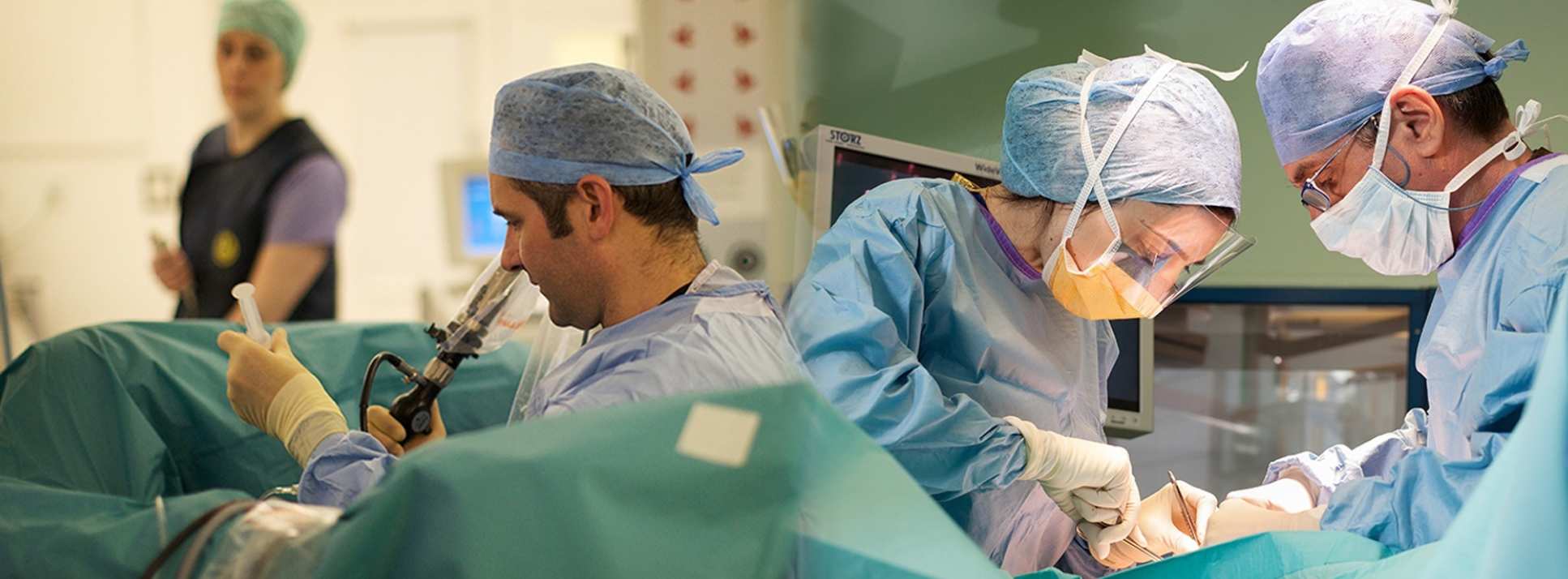Fertility and Pregnancy Care After Cancer Treatment

What we do
We have a comprehensive program of research to assess the risk of preterm birth and other complications of pregnancy in women who have had treatment for CIN and cervical cancer. This produced a series of highly influential papers in the worlds top medical journals. We have established special clinics to manage pregnancy in women who have had LLETZ or trachelectomy, which enables us to study why they are at increased risk of preterm birth and to devise treatment strategies to reduce that risk.
In 1997, Mr J Richard Smith developed the operation of radical abdominal trachelectomy, a fertility sparing procedure that treats early stage cervical cancer without the need for hysterectomy. This has led on to studies on uterine transplantation. Our work has now reached the stage where we are able to undertake the first UK trials of uterine transplantation in human cases. We are developing a bioengineered uterine graft, which would remove the need for immunosuppression in the recipient. We are also currently researching ways to preserve healthy ovarian tissue and so preserve fertility, including the pioneering use of intraoperative ultrasound to increase the accuracy of laparoscopic ovarian surgery, a project led by Mr Joseph Yazbek.
Why is it important?
The introduction of systematic call and recall screening programmes to prevent cervical cancer in the UK over the past 30 years has resulted in a marked decrease in the incidence of invasive cervical cancer as pre-invasive lesions (CIN) can be detected by the screening programme and treated appropriately. Preventative treatment usually involves large loop excision of the transformation zone (LLETZ) of the cervix, with a cure rate which prevents cervical cancer of over 90%. The majority of women with CIN are of reproductive age. Several recent studies, which we have conducted, have shown that these treatments increase the risk of preterm birth. About 5% of pregnant women are affected. In the UK this equates to about 30,000 women, and up to 3000 additional preterm births each year.
Despite a comprehensive screening program in the UK, more than 1000 women under the age of 45 years are still diagnosed with established cervical cancer every year. There are also 500 under 45 year olds with ovarian cancer and 120 with endometrial cancer annually. Some women with cervical cancer can be treated by removing the cervix only, a treatment which we pioneered, but this dramatically increases the risk of preterm birth. The majority of these women will need either removal of the ovaries and/or hysterectomy (removal of the uterus) to treat their cancer. The only current options for motherhood in women without a uterus are adoption or surrogacy, both of which are associated with complex legal, financial, cultural, ethical and religious issues.
Impact
We have published a series of studies which have clearly established the relationship between treatment for CIN and adverse pregnancy outcome and preterm birth. We have established a management protocol for these patients which reduces their risk of preterm birth back to that of the general population.
In 1997, Richard Smith developed the radical abdominal trachelectomy, which has spared the fertility of thousands of women diagnosed with cervical cancer.
In 2016 after 19 years of pioneering research, the UK uterine transplantation team have received ethical approval to perform the first 10 uterine transplants in the United Kingdom. http://www.bbc.co.uk/programmes/p0379nps


